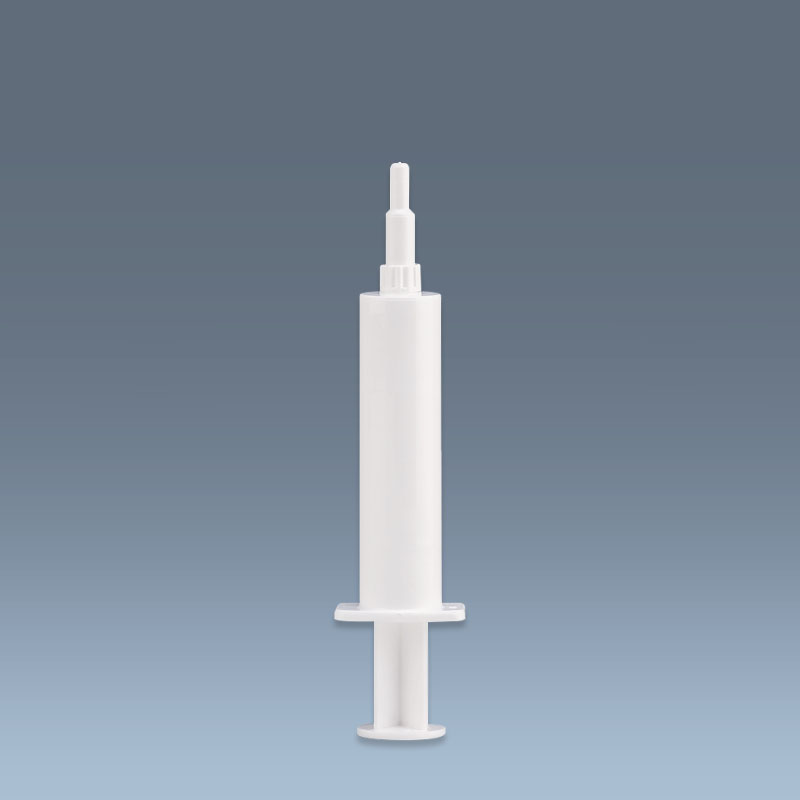Mar. 27, 2025
In the veterinary pharmaceutical industry, the 10mL pre-filled syringe is a crucial packaging solution, especially for the administration of bovine mastitis medication. However, the quality of the packaging, particularly its sealing performance, directly affects the safety and efficacy of the drug. Ensuring proper sealing is therefore a critical task.
According to the Veterinary Pre-Filled Plastic Teat Injector standard, sealing performance testing is a stringent and necessary procedure. The test begins by filling the syringe with an appropriate amount of medication and adding a measured quantity of water or colored solution. The plunger is then inserted, and air is expelled to ensure no air remains inside the syringe barrel. After capping the syringe, a 30N axial force is applied to the plunger for 30 seconds. During this process, the sealing points, including the cap seal and piston seal, must remain leak-free.

Sealing performance testing is not just a procedural step—it is a guarantee of drug safety. A well-sealed syringe effectively prevents leakage and contamination, ensuring that the medication remains pure and intact during administration. On the other hand, inadequate sealing can lead to drug wastage, contamination, reduced efficacy, and even potential harm to animal health.
To ensure the sealing integrity of the 10mL pre-filled syringe, manufacturers must strictly adhere to regulatory standards and establish a comprehensive quality control system. Every syringe should meet the required specifications, and production equipment and processes should be regularly inspected and maintained to ensure product consistency and reliability.
In conclusion, sealing performance is a critical attribute of the 10mL pre-filled syringe in veterinary medicine. Rigorous testing and quality control are essential to guarantee safe and effective drug delivery. Only through stringent sealing validation can veterinarians and animals be assured of reliable protection and treatment.
 冀ICP备11016487号-1
冀ICP备11016487号-1